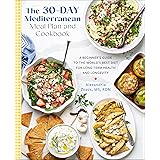Many individuals seek effective dietary strategies. Navigating numerous health claims becomes a challenge. The Mediterranean Diet consistently receives top accolades. Its holistic approach offers a proven solution. Dr. Blake Shusterman discusses its numerous benefits in the video above. A deeper understanding of this dietary pattern is warranted.
For six consecutive years, this diet earned the top ranking. Its comprehensive nature is recognized. This is not merely a diet plan. Instead, it embodies a complete lifestyle transformation. The Mediterranean Diet provides a template for long-term wellness. Its principles are rooted in historical dietary patterns. Such patterns are observed across the Mediterranean region.
The Mediterranean Diet: A Lifestyle, Not Just a Diet
Defining the Mediterranean Diet goes beyond food choices. It truly represents a lifestyle. Imagine a life lived in coastal Sicily. Fresh, local produce is readily available. Daily movement through towns becomes natural. Social connections are prioritized at mealtimes. This vision forms the foundation of the Mediterranean approach.
This lifestyle integrates various wellness components. Regular physical activity is often included. Sufficient sleep is also considered vital. Stress reduction techniques are widely practiced. Strong social bonds further enhance well-being. These elements collectively maximize health outcomes.
Pillars of Mediterranean Eating: A Deep Dive
Specific dietary tenets are core to the Mediterranean Diet. These principles guide food selections. Optimal health outcomes are thereby supported. A shift towards certain food groups is emphasized. Unhealthy choices are consequently minimized.
-
Emphasizing Plant-Based Foods: The Mediterranean Diet is primarily plant-forward. Legumes, nuts, and whole grains form its protein base. Fresh fruits and vegetables are consumed abundantly. These foods supply essential vitamins and minerals. They also deliver significant fiber content.
Fiber is known for digestive health. It aids in blood sugar regulation. A varied plant intake ensures diverse phytonutrients. These compounds provide anti-inflammatory effects. They also offer crucial antioxidant protection.
-
Prioritizing Healthy Fats: This diet does not restrict fat. Instead, it champions ‘good’ fats. Extra virgin olive oil is a foundational staple. It is rich in monounsaturated fatty acids. These fats are linked to improved cardiovascular health.
Omega-3 fatty acids are also crucial. They are found in fatty fish like salmon and mackerel. Avocados and nuts offer additional healthy fats. These sources contribute to satiety. They help prevent cravings for refined carbohydrates.
-
Embracing Whole Grains: Grains are an integral part of this diet. Whole grains are particularly encouraged. Farro and brown rice are excellent examples. Even occasional bread or pasta is permitted. This acknowledges cultural food traditions.
Whole grains provide sustained energy. They are packed with dietary fiber. Complex carbohydrates aid in stable blood glucose levels. This contrasts sharply with refined grain consumption. Such choices often lead to energy spikes and crashes.
-
Hydration and Moderate Wine: Water is the preferred beverage. Adequate hydration is paramount for health. Sugar-sweetened drinks are largely avoided. These contribute to metabolic dysfunction.
A small, occasional glass of wine is permitted. This is typically enjoyed with meals. Wine’s role is often social, not medicinal. Its consumption encourages conversation. Overindulgence is strongly discouraged.
-
Thoughtful Dairy Consumption: Dairy products are included in moderation. Low-fat varieties are often suggested. Greek yogurt and certain cheeses are examples. However, added sugars in low-fat options must be avoided. Full-fat, unsweetened options might be preferred.
Dairy provides calcium and protein. Fermented dairy offers probiotic benefits. Careful selection prevents excessive sugar intake. This balance ensures overall dietary integrity.
-
Limiting Processed Meats: Processed meats are largely excluded. Items like hot dogs and pepperoni are restricted. These contain high levels of sodium and nitrates. Such components are detrimental to health.
Lean protein sources are preferred. Fresh chicken and fish are excellent choices. A small amount of cured meat, like prosciutto, might flavor a dish. This is distinct from regular consumption. Moderation and context are key considerations.
Evidence and Health Benefits of the Mediterranean Diet
The scientific evidence supporting the Mediterranean Diet is compelling. Its health benefits are extensively documented. Numerous studies have been conducted. The Mediterranean Diet is arguably the most researched dietary pattern.
Robust benefits are observed across multiple health domains. A healthy weight is often maintained. Cognitive decline and dementia risk are reduced. Cardiovascular health sees significant improvements. Cholesterol levels are favorably modulated. Even telomere length, a marker of cellular aging, shows positive associations. Imagine a diet that supports longevity at a cellular level.
Targeting Specific Health Conditions
The versatility of the Mediterranean Diet is remarkable. It proves beneficial for various chronic conditions. Its anti-inflammatory properties are widely recognized. These contribute to systemic health improvements.
For individuals with chronic kidney disease (CKD), the Mediterranean Diet is particularly notable. Its plant-centric nature helps manage acid load. This reduces strain on kidney function. It offers a nephroprotective eating strategy. Patients across all CKD stages, including transplant recipients and those on dialysis, may benefit. Specific adjustments might be needed for potassium or phosphorus, however. These decisions are made in consultation with medical professionals.
Cardiovascular disease prevention is another hallmark. The emphasis on healthy fats reduces LDL cholesterol. Abundant antioxidants combat oxidative stress. Endothelial function is consequently improved. This leads to healthier blood vessels. Blood pressure regulation is also enhanced.
Embracing the Mediterranean Lifestyle: Practical Application
Successfully adopting the Mediterranean Diet means embracing a full lifestyle. It extends far beyond meal planning. Consistent healthy habits are critical. These practices reinforce the dietary choices made.
Regular physical activity is encouraged. Aim for exercise four to five times weekly. Quality sleep is equally important. Strive for eight hours of rest nightly. Social engagement with friends and family fosters mental well-being. Stress reduction techniques, such as mindfulness, are invaluable. These composite elements synergistically enhance overall health.
Conversely, inconsistent choices undermine progress. Eating a healthy dinner is commendable. However, skipping breakfast for a sugary, processed meal negates benefits. Old detrimental habits must be systematically replaced. The Mediterranean Diet demands a consistent approach. Its principles should guide decisions from morning to night. True transformation is achieved through unwavering commitment.











